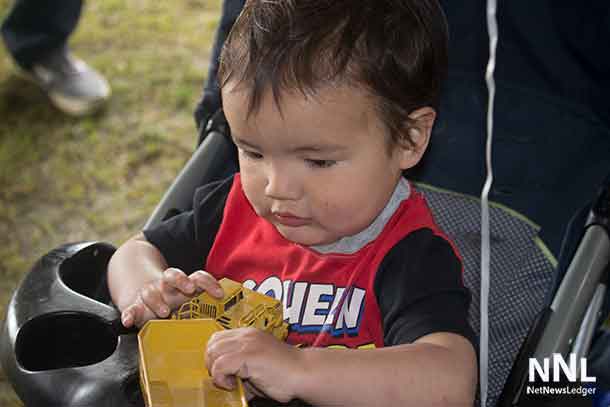TORONTO – Throughout CCAB’s research on Aboriginal entrepreneurship, Aboriginal businesses consistently identify a lack of access to financing as a major barrier to business development and growth. Other barriers and unique challenges include remoteness, lack of adequate infrastructure, unreliable internet access, lack of credit history, limited personal net worth, impediments to business development imposed by the Indian Act, among other things.
On Friday, March 20, Tabatha Bull, the recently appointed President & CEO of Canadian Council for Aboriginal Business (CCAB) along with five other of Canada’s leading Indigenous organizations, the Aboriginal Financial Officers Association (AFOA), Council for the Advancement of Native Development Officers (CANDO), Indigenous Works, National Aboriginal Capital Corporations Association (NACCA), and National Aboriginal Trust Officers Association (NATOA), sent a letter to the Prime Minister, key ministers, and the cabinet committee on COVID-19 to urge policy that considers targeted liquidity and bridge financing for Aboriginal businesses, specifically SMEs.
CCAB’s data demonstrate that over 60% of Aboriginal businesses are SMEs.
“Understanding the existing barriers that Aboriginal businesses already face, including lack of access to financing, means that government and business must work collaboratively and focus more on what needs to be done to help our most vulnerable,” said Bull. “We support the government’s initiative to provide financing through Business Development Canada and Export Development Canada and ask that the government also provide financing through established Indigenous institutions and directly to Aboriginal businesses.”
Ms. Bull and others agree with the statement that the Honourable Perrin Beatty expressed in a recent letter to the Honourable Chrystia Freeland,
“…many Canadian businesses are currently experiencing the impact and should COVID-19 continue to spread throughout Canada, the damage to our economy will be considerable. In particular, our most vulnerable businesses – SMEs – risk being the hardest hit if they are not prepared.”
The Canadian Federation of Independent Businesses (CFID) has indicated that 25% of SMEs will not survive a closure period of 30 days or longer without some level of stimulus support. Financial aid to support SMEs during this period must respect that Aboriginal businesses have unique challenges including access to traditional financial institutions.
The main source of financing for privately-owned Aboriginal businesses reported is retained earnings and personal savings. The main source of financing for community-owned Aboriginal businesses, generally larger and more complex organizations, tends to be own-source revenue or revenue from the Aboriginal Economic Development Corporations (AEDC) followed by business loans/lines of credit from a financial institution. In 2018, only a third (30%) of businesses surveyed report that they rely mainly on business loans or lines of credit from a traditional lender.
Data from CCAB’s report on Indigenous-owned exporting SMEs indicates that approximately 34.3 percent have 1 to 4 employees (micro-sized). Most (46.0 percent) have 5 to 19 employees (tiny-sized). An additional 15.9 percent have 20 to 99 employees (small-sized), and the remainder (3.8 percent) have
between 100 and 499 employees (medium-sized). Approximately one-third of SMEs identified by CCAB are located on reserve.
During this unprecedented and challenging time, CCAB is supporting government and business with strong research to help meet the unique needs of Aboriginal businesses in Canada and to ensure that supportive programs and financing are delivered directly to those vulnerable businesses. CCAB is also developing programs and tools to help members adapt their businesses during the pandemic.
About the Canadian Council for Aboriginal Business
Canadian Council for Aboriginal Business (CCAB) is committed to the full participation of Indigenous peoples in Canada’s economy. A national, non-partisan association, CCAB offers knowledge, resources, and programs to both Aboriginal and non-Aboriginal owned companies that foster economic opportunities for Indigenous peoples and businesses across Canada. For more information visit www.ccab.com.







